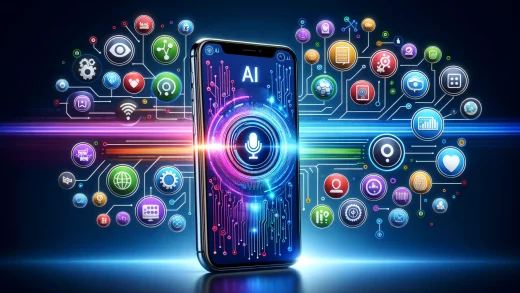The Role of AI in Revolutionizing Fitness Tracking
Why AI is the Ultimate Workout Buddy
Fitness tracking has come a long way from old-school pedometers and notebooks. Today, thanks to the magic of AI-powered tools, your fitness journey feels less like guesswork and more like having a personal trainer right in your pocket. It’s not just numbers on a screen anymore—it’s tailored insights that understand *you*.
Imagine this: you go for a morning run, and your fitness app doesn’t just count your steps. It analyzes your pace, monitors how efficiently you’re breathing, and even tells you when to slow down or speed up so you can hit that sweet spot of performance. That’s not tech; that’s a game-changer.
- AI can detect patterns you miss: Feeling drained after every workout? AI might pinpoint poor recovery habits or overlooked nutrition gaps.
- Responsive adjustments: Skipped leg day? (Oops!) Your app knows and recalibrates your week’s plan without judgment.
These systems evolve with you. Whether you’re chasing a marathon PB or just trying to outpace your dog on a walk, AI ensures every effort counts. It’s like having a fitness partner who knows your mind *and* your body, without ever needing a pep talk.
Personalization and Customization Through AI
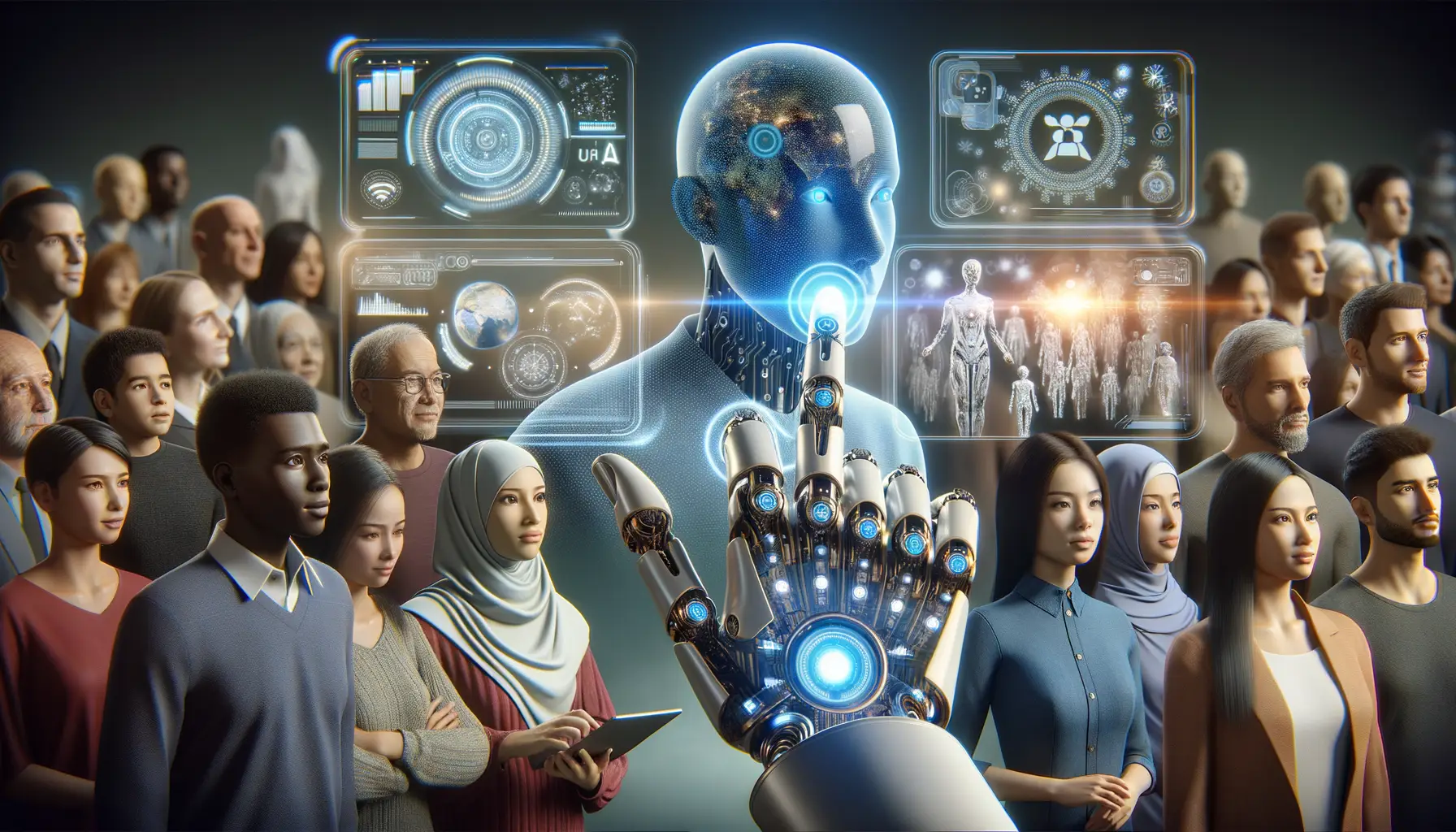
Your Fitness Journey, Tailored by AI
Imagine having a personal trainer who knows not just your fitness goals but also your quirks, preferences, and even those mornings when you just can’t face the treadmill. That’s the magic of AI-powered personalization. Fitness apps today are more than step counters—they’re like that friend who always seems to know exactly what you need, when you need it.
Through advanced algorithms, AI collects information about your habits, fitness levels, and progress. The result? A plan that feels crafted just for *you*. Whether it’s suggesting low-impact yoga on a sore-muscle day or pushing for an intense HIIT session when it notices your energy is high, these apps adapt dynamically.
- Customized workout plans that evolve as you do
- Nutrition advice based on your dietary needs and preferences
- Daily reminders that hit you at the *exact* time you may need motivation
This is where the brilliance lies: AI doesn’t serve up generic advice or one-size-fits-all programs. Instead, it delivers experiences tailored with laser-sharp precision, making you feel like there’s someone—or something—truly rooting for you. It’s personal, it’s smart, and dare I say… it might even feel a little magical.
Beyond Data: Building Emotional Connection
Here’s the thing—fitness isn’t just numbers on a screen. It’s deeply emotional. That’s why AI doesn’t stop at tracking stats; it aims to understand *you*. For instance, if you skip a few workouts, an intelligent app won’t guilt-trip you. Instead, it might nudge you with a gentle note: “Hey, how about a quick stretch? You’ve got this!”
And let’s not forget the fun! Many apps now let you input personal preferences to create unique playlists for your run, or suggest challenges inspired by your favorite activities. Craving adventure? AI can turn your daily jog into a virtual race through scenic landscapes.
This blend of tech and empathy makes all the difference. It’s not just customization—it’s creating a journey that feels uniquely yours.
AI-Driven Motivation: Gamification and Virtual Coaches
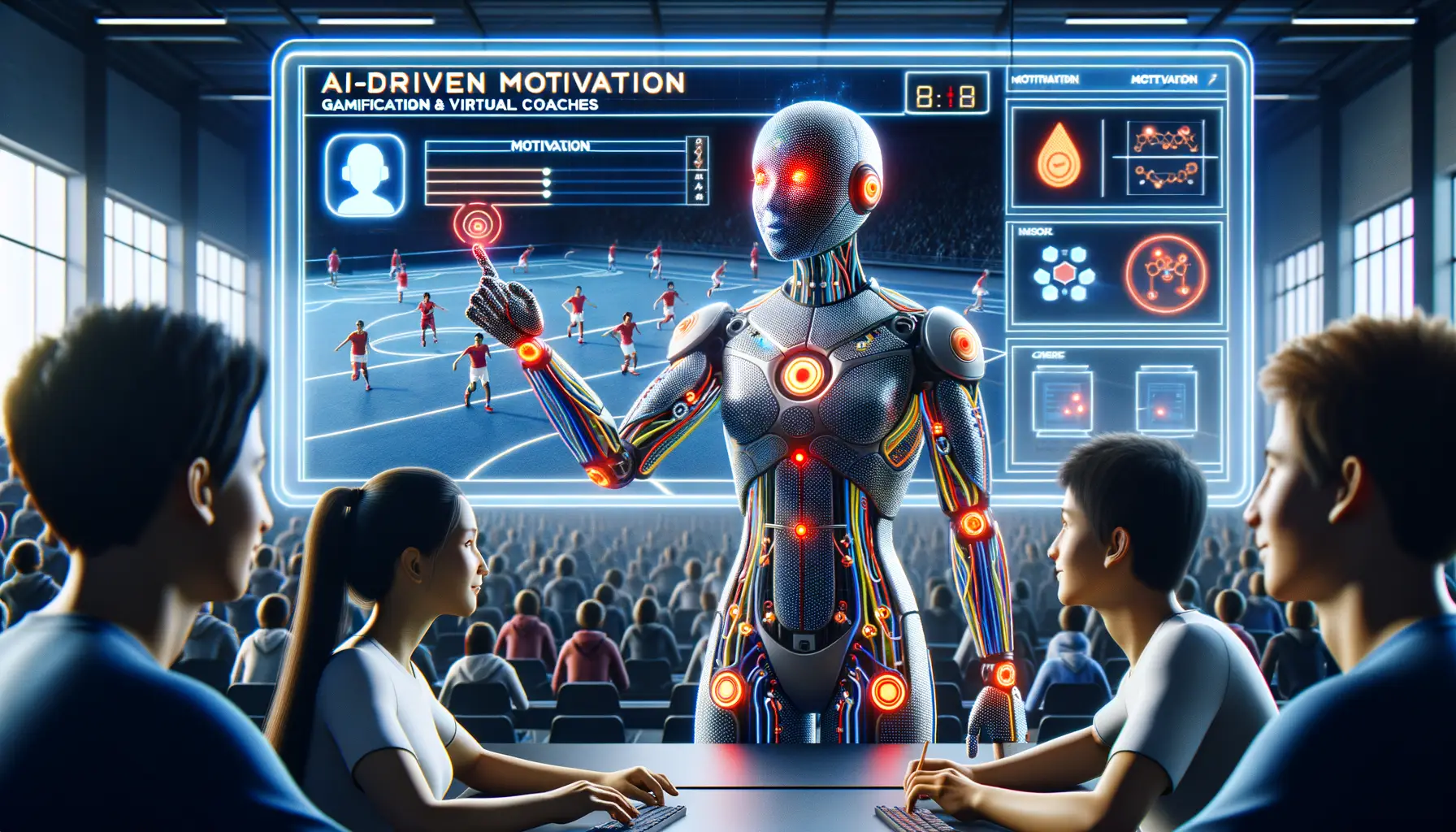
Leveling Up Your Fitness Journey with Gamification
Imagine your fitness app transforming your daily workouts into a game you can’t put down. Thanks to AI, gamification is no longer just a buzzword—it’s your secret weapon for staying motivated. Picture this: you’re earning points for every push-up, unlocking badges for consistent yoga flows, or conquering virtual mountains on your stationary bike. Suddenly, exercise feels less like a chore and more like an adventure.
AI doesn’t just keep track of your progress; it builds worlds around your goals. Need ideas?
- Turn runs into exhilarating races against virtual opponents.
- Complete challenges to “rescue” points in a zombie apocalypse game.
- Compete with friends—or strangers—on digital leaderboards.
These small wins, powered by AI, ignite a dopamine rush that keeps you coming back for more. And who doesn’t love winning at life?
Meet Your Virtual Cheerleader
Beyond games, say hello to your new best friend: the virtual coach. Driven by AI intelligence, these coaches are a perfect blend of tough love and encouragement. They don’t just count reps—they study your form, adapt routines in real-time, and even sense when you’re about to throw in the towel.
Take Sarah, for example. Her virtual coach doesn’t just say, “Great job!” after a workout—it knows she crushed her previous mile time by 20 seconds. Specific praise like that makes all the difference. Personalized pep talks, motivational quotes delivered at just the right moment, and even adjustments to match your mood? That’s not just smart—it’s borderline magic.
With AI-driven motivation, your fitness journey feels personal, dynamic, and, dare we say, addictive.
Future Trends: How AI Will Continue to Transform Fitness Apps
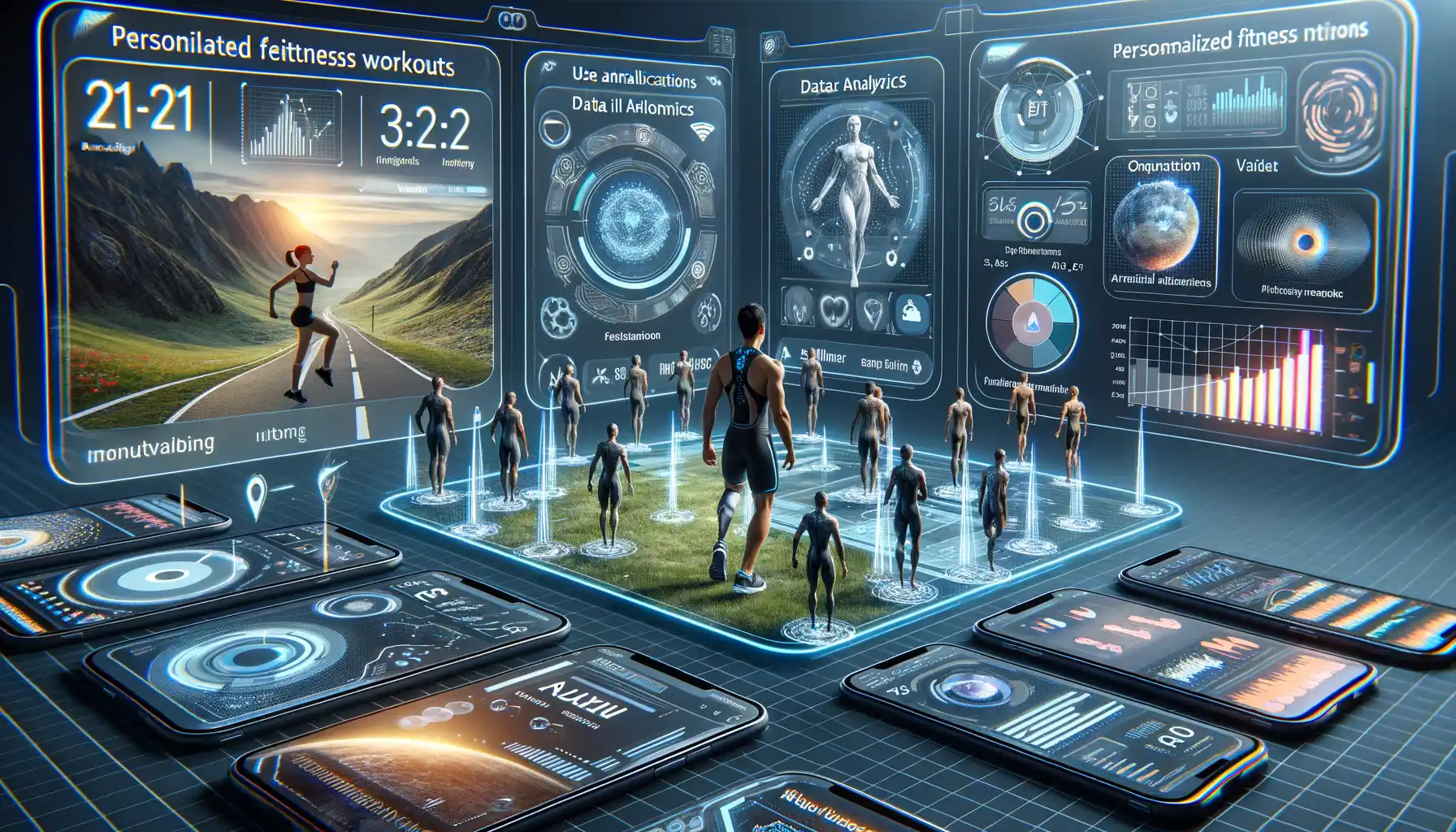
AI-Powered Workouts That Think Ahead
Picture this: A fitness app that anticipates your needs before you even voice them. That’s where the future is heading. With advanced AI models, apps may soon understand not just what your body *needs*, but what it’s craving—whether that’s recovery stretches after a long day or an energizing HIIT session to kickstart your morning.
These future fitness apps could factor in everything from your recent sleep cycles to real-time stress levels, all courtesy of wearables and evolving biometric sensors. And let’s not forget external data: imagine an app adjusting your outdoor running plan based on unexpected rainfall or poor air quality in your area. It’s not *just* smart—it’s intuitive.
- Predictive adjustments for personalized schedules
- Integration with mental health insights for holistic wellness
- On-demand recommendations based on daily energy levels
The Rise of AR and AI Together
Here’s where it gets futuristic: augmented reality (AR) merging with AI. Imagine walking into your living room, putting on AR glasses, and being guided through workouts by a lifelike, interactive coach. Your AI trainer won’t just demonstrate moves; they’ll adjust their tone, pace, and feedback to match your mood—and correct your form in real-time.
And how about gamified group sessions? Envision virtual cycling classes through scenic Tuscany or yoga flows on a serene beach, all hosted with stunning AR environments. These aren’t workouts—they’re experiences.
With every passing year, fitness tech will tap deeper into this blend of personalization and immersive escapism, turning our routines into something we can’t wait to come back to. The future’s looking fit!
Challenges and Ethical Considerations of AI in Fitness
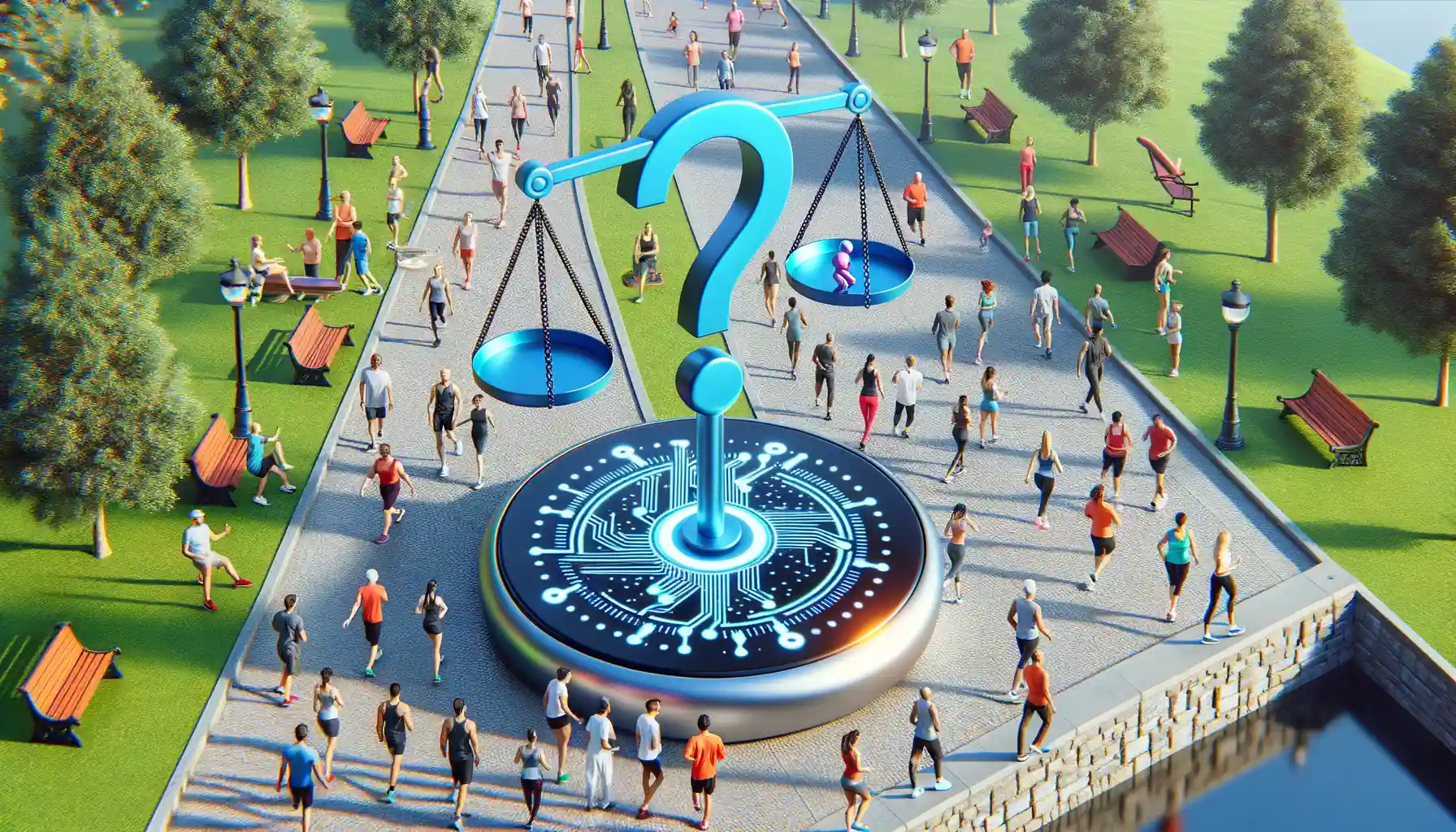
When AI Gets It Wrong: Potential Pitfalls
Picture this: you’re halfway through an intense HIIT session, sweat pouring, and your fitness app’s AI coach chimes in with a suggestion to “take it easy” because it misread your heart rate. Frustrating, right? While AI in fitness can feel like magic, it’s not infallible. Algorithms depend on data, and if that data is flawed or incomplete, the results could veer far from ideal. From incorrect calorie burn tracking to mismatched workout suggestions, errors happen.
What about privacy? Now that’s a whole other beast. Fitness apps often collect deeply personal info—your weight, sleep patterns, even menstrual cycles. Where does all that data go? And who’s looking at it? These are questions that make us pause before hitting “Agree” on those lengthy terms and conditions.
- Will AI ever reach a point where it crosses the line between useful feedback and invasive recommendations?
- And how do we ensure minority groups aren’t left out due to biased datasets?
It’s clear: as much as we’d like AI to act as a flawless fitness partner, the road ahead needs thoughtful navigation.
Striking a Balance: Tech Meets Humanity
Now let’s talk ethics. Imagine being measured solely by an algorithm’s cold, unyielding criteria. No room for bad days or emotional wins. This is one of AI’s blind spots. While it excels at crunching numbers, it lacks empathy—the human touch that understands why smashing a 20-minute run after weeks of struggle feels like climbing Everest.
The question is: can fitness apps bridge the gap? It’s crucial to integrate safeguards against overreliance on AI. Perhaps AI should act more as a guide, with the final say left up to us. After all, your fitness journey is uniquely yours—not something to be confined to a sterile data chart.
Above all, while innovation charges forward, we must ask: are we creating tools that empower us, or systems that control us?

